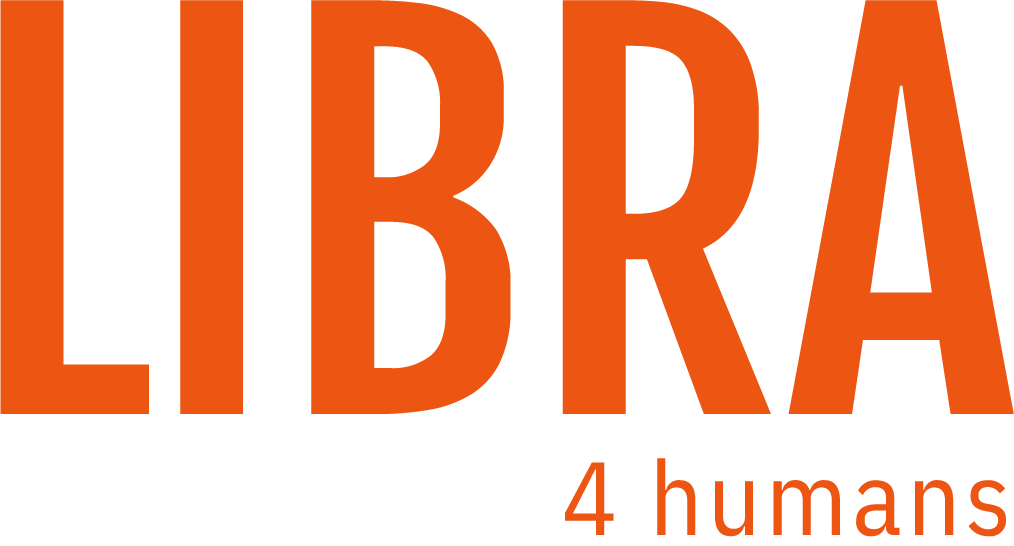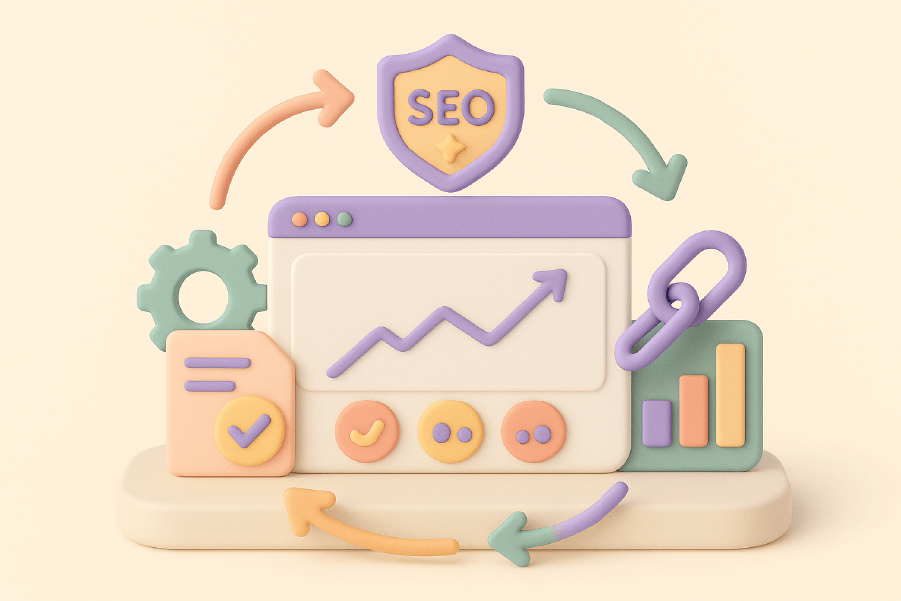Looking to fuel your business growth with a solid marketing strategy for growth? In this article, we will cover proven tactics designed to drive sustainable growth. Whether you’re looking to better understand growth marketing, leverage new technologies, or explore innovative sales channels, you’ll find detailed insights to help your business thrive.
Growth marketing in 2025

Growth marketing emphasizes customer acquisition, retention, and adaptability to consumer preferences, making it essential for sustainable success.

Incorporating Augmented Reality (AR) creates immersive experiences that enhance customer engagement and loyalty, providing competitive advantages.

Sustainability and ethical marketing practices not only improve brand reputation but also resonate with modern consumers, leading to increased customer loyalty and sales.
Understanding Growth Marketing

Growth marketing is not just a buzzword; it’s a comprehensive approach that focuses on techniques to drive sustainable growth. Unlike traditional marketing, which often relies on one-way communication, growth marketing emphasizes customer acquisition, retention, and market expansion. It serves as a blueprint for success, guiding businesses forward in a competitive market. In the evolving market landscape of 2025, companies must adapt to consumer and market changes to thrive.
A detailed comprehensive growth strategy helps combat market volatility and ensures long-term success. Strategic growth initiatives combine market development, diversification, and strategic partnerships through long-term initiatives. Successful companies grow by setting clear goals and understanding factors that influence their strategies.
Modern growth marketing integrates Augmented Reality for interactive experiences and fosters brand communities for better customer engagement. These strategies are key to sustainable growth and standing out in a crowded marketplace.
What is Growth Marketing?
Growth marketing drives sustainable revenue growth through new products or services and enhances customer loyalty. Unlike traditional marketing, growth marketing leverages referrals and organic growth strategies to expand reach efficiently. Core strategies include researching markets, understanding customer behavior, and implementing diverse marketing tactics to target new audiences, all part of a comprehensive growth marketing strategy.
Measuring growth marketing success helps ensure goals are met and identifies effective strategies. This involves continuous market research and adapting strategies based on real-time data. Growth marketers must be agile and responsive to changes in consumer behavior and market dynamics.
Why Growth Marketing is Essential in 2025
In 2025, understanding customer preferences is critical for effectively communicating and increasing brand visibility. Modern marketing strategies are designed to be versatile, allowing various businesses to leverage them effectively for growth. These strategies emphasize cutting-edge approaches that resonate with modern consumer preferences.
Flexible business growth strategies help businesses adapt to market changes and seize new opportunities. Startups and SMEs can quickly adapt and capitalize on emerging opportunities with these strategies. A successful business growth strategy that increases brand visibility enhances credibility and fosters trust among potential customers. Understanding the various types of business growth can further enhance these strategies.
Leveraging Augmented Reality (AR) for Interactive Customer Experiences

Augmented Reality (AR) offers a unique way to create immersive experiences for customers, enhancing their interaction with products. AR helps businesses provide engaging, interactive content that captures attention and fosters brand loyalty. Incorporating AR in marketing leverages data and technology to drive engagement and retention.
Integrating AR into marketing creates memorable experiences that attract and retain customers in a competitive market. This section will delve into the specific benefits of AR in marketing and provide examples of successful AR campaigns that have made a significant impact.
Benefits of AR in Marketing
AR allows customers to visualize products in their own environments before purchasing, facilitating unique interactions. This capability enhances customer satisfaction and confidence in their purchase decisions. AR offers a competitive edge, with many consumers preferring brands that provide AR experiences.
Incorporating AR in marketing engages customers beyond conventional advertising. This captures attention and fosters deeper brand connections. The immersive nature of AR experiences can lead to increased customer loyalty and positive word-of-mouth promotion.
Successful AR Campaign Examples
Pepsi Max’s AR campaign at a bus shelter created surprising and engaging experiences that garnered viral attention. This campaign transformed a mundane bus stop into an exciting AR experience, capturing the imagination of passersby and creating a buzz on social media.
Another example is a beauty brand that used AR to allow customers to try on makeup virtually, resulting in significant increases in engagement and sales. These stories show how innovative AR campaigns elevate brand visibility and create memorable experiences.
Prioritizing Sustainability and Ethical Marketing

Sustainability and ethical marketing resonate with today’s conscious consumers. Sustainable marketing practices contribute to environmental well-being and attract conscious consumers. This section will explore various sustainable marketing practices and provide case studies of companies that have successfully implemented ethical marketing.
Adopting sustainable practices like using eco-friendly materials and promoting social responsibility enhances brand reputation and increases customer loyalty and sales. Ethical marketing is not just a trend but a strategic growth initiative that can lead to long-term success.
Sustainable Marketing Practices
Energy-efficient processes and renewable energy are practical starting points for sustainability. Recyclable or biodegradable eco-friendly packaging resonates with environmentally conscious consumers. Certifications like Fair Trade or B Corp can validate a company’s commitment to ethical practices and sustainability.
These practices contribute to a positive brand image and attract customers who prioritize sustainability. Integrating these practices into marketing strategies builds stronger connections with the target market and fosters long-term loyalty.
Case Studies of Ethical Marketing
Ben & Jerry’s ensures ethical treatment of farmers and workers by using Fair Trade Certified ingredients. This ethical sourcing commitment has enhanced brand reputation and customer loyalty. Patagonia’s commitment to donating a percentage of sales to environmental causes exemplifies strong ethical marketing.
These companies have improved public perception and experienced growth in customer loyalty and sales. Ethical marketing is becoming increasingly vital for businesses seeking sustainable growth and consumer loyalty.
Adopting AI for Hyper-Personalized Marketing

Artificial intelligence (AI) enables marketers to deliver personalized messages based on extensive customer data. AI tools like machine learning algorithms and predictive analytics assess customer behavior and preferences, enabling tailored marketing messages.
Implementing AI in marketing enhances personalization, leading to increased conversion rates and customer loyalty. This section will explore specific AI tools and provide success stories of companies that have effectively utilized AI for hyper-personalized marketing.
AI Tools for Personalized Marketing
Hyper-personalization ensures better engagement and customer retention. AI tools like Natural Language Processing (NLP) and predictive analytics create customized marketing content based on user interactions. E-commerce brands enhance visibility and customer engagement through personalized digital marketing tactics.
Data-driven strategies help marketing teams continuously optimize campaigns to meet growth objectives. Personalized interactions enhance customer loyalty and can increase referrals.
These tools enable timely and relevant communications that resonate with the target audience.
Success Stories of AI-Driven Marketing
A beauty brand achieved an 11-fold increase in purchase rates by leveraging AI for personalized product recommendations. A villa rental company improved its online bookings by 33% through the use of AI-driven personalization tools. Another success story is a consumer electronics company that boosted its new customer conversion rate by 136% with AI personalization on its website.
These examples show AI’s potential in marketing, encouraging businesses to adopt these technologies for sustainable growth. The success stories highlight significant improvements in engagement and customer satisfaction through AI-driven marketing strategies.
Expanding to Emerging Sales Channels

Modern marketplaces like Instagram and TikTok are vital sales channels due to their integrated shopping features. Direct sales channels allow businesses to sell products directly to consumers, enhancing profit margins. This section will discuss the importance of exploring new sales channels and provide insights into social commerce platforms and niche digital marketplaces.
Emerging sales channels offer access to targeted audiences, reducing competition and increasing conversion rates. Engaging with these platforms helps businesses establish a strong foothold in specialized existing markets and foster loyal existing and potential customers, enhancing market penetration.
Social Commerce Platforms
Social media marketing showcases products directly to target audiences. Social commerce uses social media platforms to facilitate buying and selling, making it easier for businesses to connect with consumers. Platforms like Instagram Shopping and TikTok offer a seamless shopping experience by allowing users to shop directly through their apps.
Using social commerce platforms can significantly boost sales by engaging consumers in their preferred digital environments. These platforms allow businesses to reach a wider audience and enhance customer engagement through interactive and immersive experiences.
Niche Digital Marketplaces
Niche digital marketplaces cater to specific customer segments by offering specialized products or services. These marketplaces offer access to targeted audiences, reducing competition and increasing conversion rates. Businesses engaging with niche marketplaces often experience improved customer loyalty due to the personalized experiences they provide.
Success stories of niche marketplaces show effective community engagement, driving brand growth and consumer satisfaction. Using niche digital marketplaces helps businesses establish a strong foothold in specialized markets while fostering loyal customer bases.
Fostering Brand Communities Online
Companies must continuously seek innovation to remain competitive in a rapidly evolving market. Effective marketing strategies lead to improved customer engagement and loyalty. This section will discuss the importance of building strong brand communities and provide strategies and benefits.
Modern consumers increasingly prefer brands that take a stand on social and environmental issues. Sustainability and ethical practices are increasingly crucial for attracting and retaining modern consumers. By fostering brand communities online, businesses can enhance customer relationships and loyalty.
Strategies for Building Brand Communities
Social media engagement is vital for forming and nurturing brand communities. Discussions, contests, and Q&A sessions encourage active participation among community members. Exclusive events and unique content foster deeper connections with the brand.
Recognizing and rewarding loyal members strengthens engagement and encourages ongoing participation. These strategies help build a strong, engaged community that supports brand growth and fosters long-term loyalty.
Benefits of Strong Brand Communities
Strong brand communities increase customer loyalty as members develop emotional connections with the brand. Meaningful interactions significantly boost customer loyalty and retention rates. Active brand communities amplify word-of-mouth marketing, with satisfied members recommending the brand to others.
These communities provide valuable insights into customer preferences and feedback, useful for better product development. Companies with strong brand communities benefit from higher retention and advocacy, driving long-term growth.
Target Audience for Modern Marketing Strategies
Market and audience research helps businesses identify growth trends and barriers in the current market. The target audience for these modern marketing strategies includes startups, small and medium-sized enterprises (SMEs), e-commerce businesses, and marketing teams. These strategies offer significant advantages for target audiences, enhancing their market presence.
Startups and SMEs can use innovative marketing strategies for rapid growth. E-commerce businesses benefit from targeted digital marketing, while marketing teams implement strategies aligning with business growth goals.
Startups and SMEs
Startups can rapidly scale by using agile marketing strategies that adapt to market feedback. Agile marketing strategies allow startups to quickly adjust campaigns based on real-time consumer insights and feedback. AI marketing tools analyze user behavior and demographics to create personalized campaigns for specific customer segments.
Integrating agile marketing with AI-driven insights allows startups and SMEs to achieve rapid growth by meeting customer needs. These strategies help startups and SMEs penetrate new markets and expand their customer base.
E-commerce Businesses
E-commerce companies achieve significant growth by implementing targeted digital marketing techniques like SEO and social media advertising. These techniques enhance visibility and engagement, leading to increased sales and loyalty.
Market research and understanding customer behavior help e-commerce businesses optimize sales funnels and improve conversion rates. Using social media platforms and personalized marketing strategies helps e-commerce businesses attract and retain customers.
Marketing Teams
Marketing teams implement strategies that align with overall business growth goals. Data analytics and AI tools help marketing teams optimize campaigns and target audiences more precisely. This ensures marketing efforts are effective and yield desired results.
Marketing teams must adapt to market changes and consumer preferences to stay ahead of the competition. Using modern marketing strategies, they can drive business growth and achieve long-term success.
Benefits of Implementing These Marketing Strategies

Alternative sales channels enhance brand recognition and customer reach while decreasing reliance on a single channel. Building brand communities significantly enhances customer loyalty and trust. AI in marketing enables businesses to create tailored experiences, significantly enhancing engagement and conversion rates.
Implementing these innovative marketing strategies enhances brand visibility, strengthens customer connections, increases conversions, and ensures future-proof growth. These benefits contribute to long-term success and sustainable growth in a competitive market.
Enhanced Brand Visibility
AR tools offer insights into consumer behavior by tracking user engagement during experiences. Tracking user engagement in AR identifies consumer preferences and behaviors, allowing brands to tailor messaging effectively. AR-based strategies improve visibility and create impactful engagements that capture audience attention.
In today’s competitive market, enhancing brand visibility is crucial for differentiation and attracting consumers. By leveraging innovative marketing strategies, businesses can stand out and capture the attention of their target audience.
Stronger Customer Connections
A consistent approach to sustainability across all aspects of a business improves credibility with consumers. User-generated content from community members acts as social proof, enhancing the brand’s credibility among potential customers. Strong brand communities enable companies to gather valuable insights about customer preferences and feedback for better product development.
Creating meaningful interactions is essential for fostering stronger customer relationships, as customers today expect engagement and authenticity from brands. These connections lead to increased customer loyalty and long-term success.
Increased Conversions and Revenue
Personalization tools significantly increase conversion rates for new customers by adapting website content based on user behavior. Email marketing campaigns that utilize AI personalization can ensure timely and relevant communications, resulting in increased conversion rates. Strong brand communities can improve customer retention rates by nearly 19%, contributing positively to conversions.
Customers engaged in communities are more likely to recommend the brand and make repeat purchases, enhancing overall revenue. E-commerce businesses benefit from implementing growth strategies by enhancing existing customers’ experiences and optimizing sales funnels, ultimately driving higher conversion rates.
Future-Proof Growth
Creating a long-term sustainability plan is essential for addressing environmental issues effectively. Social commerce revenues were projected to reach $1.1 trillion by 2028, highlighting the growth potential of platforms like Instagram and TikTok. By planning for future growth and leveraging emerging sales channels, businesses can ensure long-term success and sustainability.
The integration of innovative marketing strategies provides businesses with a competitive edge and positions them for future growth. By continuously adapting to market changes and consumer preferences, businesses can achieve sustainable growth and maintain their market presence.
Summary
In summary, leveraging modern marketing strategies is essential for achieving business growth in 2025. By adopting innovative approaches such as AR, AI, and sustainability, businesses can enhance customer engagement, increase conversions, and future-proof their growth. These strategies provide a comprehensive roadmap for businesses aiming to thrive in a competitive market.
Implementing these strategies can lead to enhanced brand visibility, stronger customer connections, and increased revenue. By continuously adapting to market changes and consumer preferences, businesses can achieve long-term success and sustainable growth. Embrace these proven tactics and watch your business soar to new heights.
Frequently Asked Questions
What is growth marketing?
Growth marketing is a strategy that emphasizes sustainable revenue generation and customer loyalty through innovative products and services. Ultimately, it aims to create long-term business growth.
Why is growth marketing essential in 2025?
Growth marketing is essential in 2025 because it enables businesses to understand and respond to customer preferences, enhancing brand visibility and adaptability to market changes. This approach allows organizations to seize new opportunities effectively.
How can AR benefit marketing efforts?
AR enhances marketing by enabling customers to visualize products in their own space before buying, leading to increased satisfaction and a competitive advantage.
What are some examples of successful ethical marketing?
Successful ethical marketing examples include Ben & Jerry’s, which uses Fair Trade Certified ingredients, and Patagonia, which donates a portion of sales to environmental causes. These practices have resulted in increased brand loyalty and a positive public image for both companies.
How does AI contribute to personalized marketing?
AI enhances personalized marketing by analyzing customer behavior and preferences through machine learning and predictive analytics, enabling businesses to craft targeted marketing messages that boost engagement and conversion rates.






